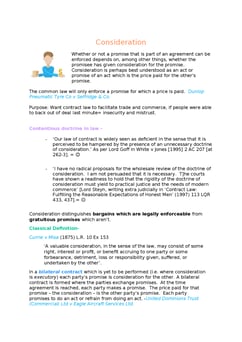CIBC Mortgages plc v Pitt [1994] AC 200
Judgement for the case CIBC Mortgages plc v Pitt
Table Of Contents
X had pressured his wife, Defendant, into letting him take out a loan on the house to invest in shares and he allowed a charge to be put against the house by the creditor, Plaintiff.
When the shares crashed and X defaulted on payments, the bank sought to repossess the house and the wife resisted on the grounds that X had unduly influenced her.
HL found that she had suffered “actual” undue influence and that this would allow her to set aside any agreements with X, but not with TPs, so that Plaintiff’s claim would succeed.
The only way Defendant’s defence would have stood would have been if Plaintiff had been her agent, but he was not.
Lord Browne-Wilkinson
Although in class 2 (presumed undue influence) there is a need to show “manifest disadvantage”, this is not the case with class 1 (actual undue influence), since it is a species of fraud and fraud does not require such an element.
For Further Study on CIBC Mortgages plc v Pitt

Contract law notes fully updated for recent exams at Oxford and Cambrid...
Need instant answers? Our AI exam tutor is here to help.
Ask questions 🙋 Get answers 📔 It's simple 👁️👄👁️
Our AI is educated by the highest scoring students across all subjects and schools. Join hundreds of your peers today.
Get StartedSimilar Cases
Related Product Samples
These product samples contain the same concepts we cover in this case.
| Contract Law | Royal Bank Of Scotland V Ettridge Notes (3 pages) |
| Contract Law | Undue Influence 1 Notes (12 pages) |
| Contract Law | Undue Influence And Unconscionability Notes (13 pages) |

 Since 2010, Oxbridge Notes has been a trusted education marketplace, supplying high-quality materials from top achievers at universities like Oxford, Cambridge, LSE, Harvard, and Yale.
Since 2010, Oxbridge Notes has been a trusted education marketplace, supplying high-quality materials from top achievers at universities like Oxford, Cambridge, LSE, Harvard, and Yale.